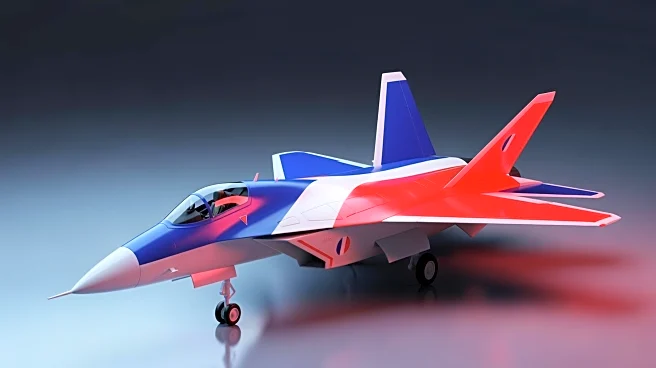What's Happening?
A French air force official has addressed concerns regarding reported disputes within the Future Combat Air System (FCAS) program, a collaborative effort between France, Germany, and Spain to develop a sixth-generation
fighter jet. Brig. Gen. Phillipe Suhr, representing the French Air Force, stated that while there are differences among the partners, the program remains on track for delivery in the 2040s. The FCAS initiative, launched in 2017, aims to replace France's Rafales and Germany's Eurofighters. Despite tensions, particularly over project control and workshare, Suhr emphasized the commitment to finding solutions and moving forward. The program has faced challenges, including disagreements over the distribution of responsibilities, with French contractor Dassault seeking a larger role. However, Suhr clarified that reports of Dassault demanding 80% control are exaggerated.
Why It's Important?
The FCAS program is crucial for maintaining European defense capabilities and technological sovereignty. It represents a significant investment in the future of military aviation, with implications for the defense industries of the participating countries. Successful collaboration could enhance Europe's strategic autonomy and reduce reliance on non-European defense systems. The program's progress is also significant in the context of global defense dynamics, as other nations, such as the UK, Italy, and Japan, advance their own sixth-generation fighter projects. The outcome of the FCAS initiative could influence the balance of military power and technological leadership in Europe.
What's Next?
As the FCAS program continues, stakeholders will need to address internal disagreements to ensure timely progress. The resolution of these issues is critical for meeting the 2040 delivery timeline. Additionally, the program's success could impact future collaborations and partnerships within the European defense sector. Observers will be watching how the involved countries manage their differences and whether they can maintain a unified approach to developing this advanced military technology.
Beyond the Headlines
The FCAS program highlights the broader challenge of balancing national interests with collaborative efforts in defense projects. The need for technological and industrial sovereignty is a recurring theme, as countries seek to protect their strategic capabilities while engaging in international partnerships. This dynamic could shape future defense collaborations and influence how countries approach joint military projects.










